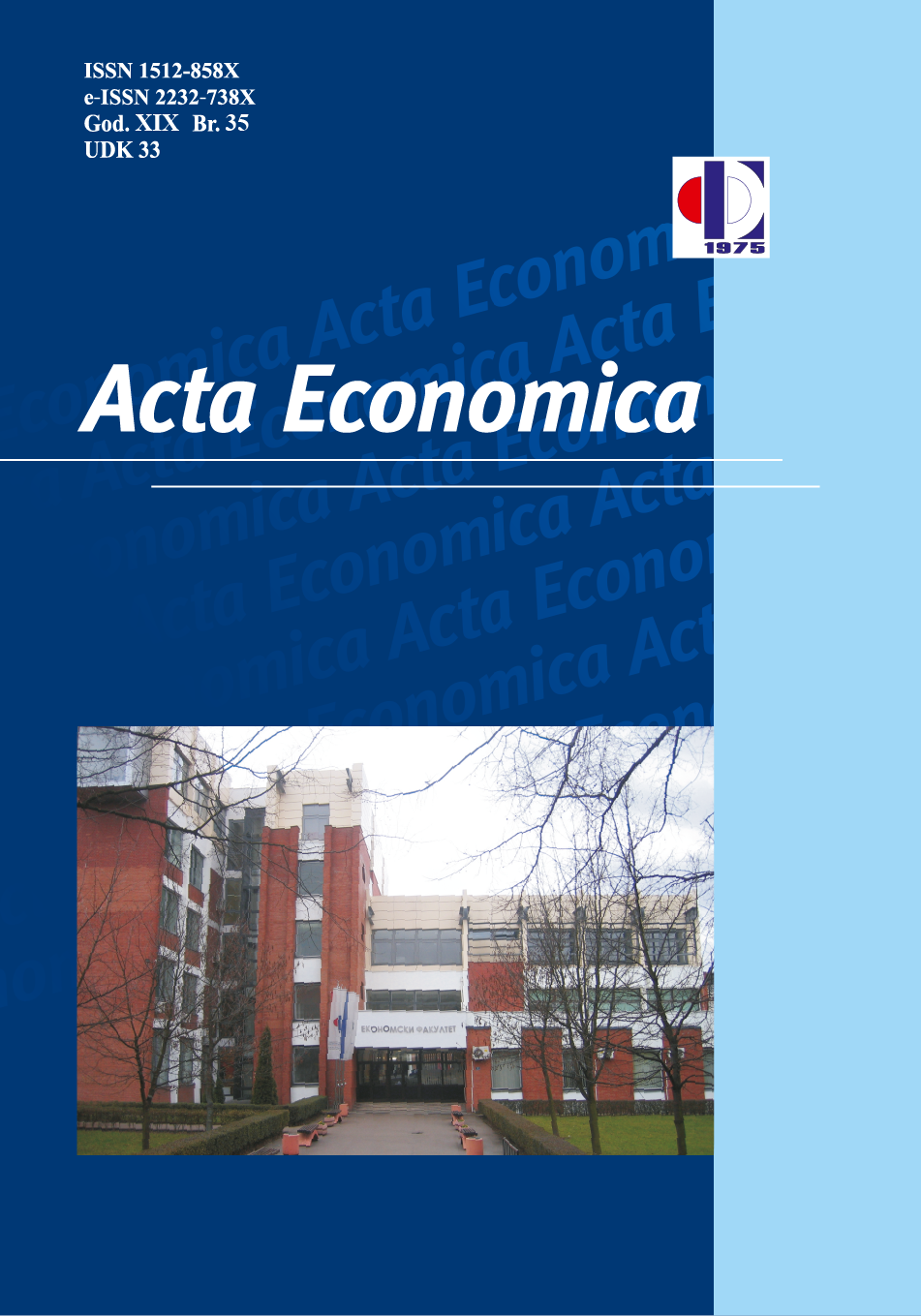POVERTY REDUCTION, INSTITUTIONS AND THE NIGERIAN ECONOMY
DOI:
https://doi.org/10.7251/ACE2135141OAbstract
The prime goal of the United Nations is to reduce pov- erty to the barest minimum in all economies of the world. Africa seem to be worst hit by poverty. Nigeria, has also experienced the consequences of poverty in the forms of kidnapping for money, extortion and so on. Although Nigeria has recorded growth in the economy over time, such growth has not succeeded in transform- ing the economy. This study therefore sets out to ex- amine the relationship between poverty reduction and economic growth through the channel of institutional quality. Trickle-down theory formed the basis for the study which covered the period 1990-2019. Correlation analysis, Granger-causality as well as the Autoregres- sive Distributed Lag model were used. The study found that an inverse but weak relationship exists between poverty reduction and economic growth. Also, a unidi- rectional flow exists from voice and accountability (an indicator of institutional quality) to poverty reduction. Moreover, the study found a strong but negative influ- ence of the rule of law on poverty reduction. Therefore, enforcement of law and order is crucial to poverty re- duction in Nigeria. In addition, government expenditure on health has had positive impact on poverty reduction, while government expenditure on education has had negative impact on poverty reduction. Hence, govern- ment investment in providing more health facilities will help to reduce poverty in Nigeria. However, govern- ment should reconsider public spending on education in Nigeria. Government intervention in education should be limited to regulation and the provision of those edu- cational facilities that face the free-rider problem.

